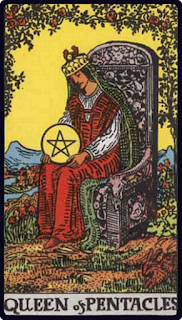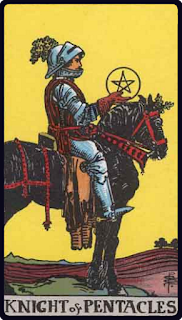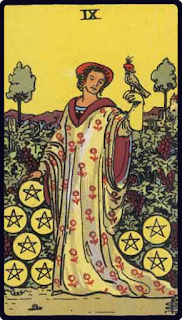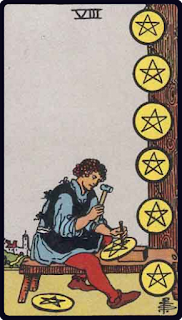
Representing the paternal nature; the King of Pentacles represents the consumption of the soul by wealth. Here the belief is asserted that the limits of our physical world are determined by how much of our spiritual self we draw upon; with the sacrifice of wealth necessary as precondition to the acquisition of wealth – you have to spend money to make money – the burden of loss although offset by the gains does not decrease as those gains are consumed. What is given up is never returned in the form it was given but rather it is transformed forever.
In the upright state the King of Pentacles represents a warning to understand exactly what we ask for, before we ask for it, lest you get everything you want and have it not be at all what you expected.
In the inverted state the King of Pentacles represents fixation and the replacement of concerns about how to gain wealth with concerns about how to prevent its loss. In the inverted state the King of Pentacles is a warning to the miser and those who seek wealth to horde it, that the Universe provides more ways to lose wealth than it does to gain it; your energy will be expended far quicker attempting to safeguard your wealth once acquired than the total sum needed to acquire it in the first place. Unearned wealth is lost with ease, however that which is earned leaves a lasting impact not least of all because the effort expended to acquire it fundamentally changes us in the process.






